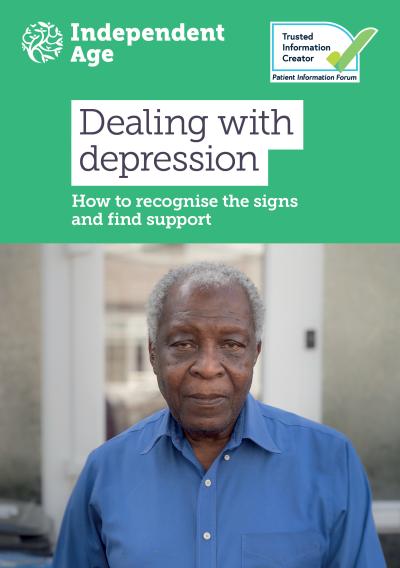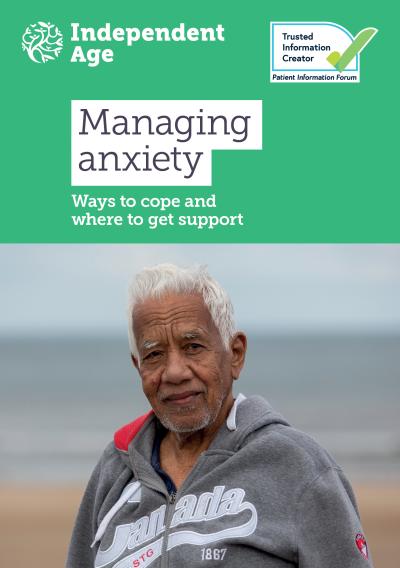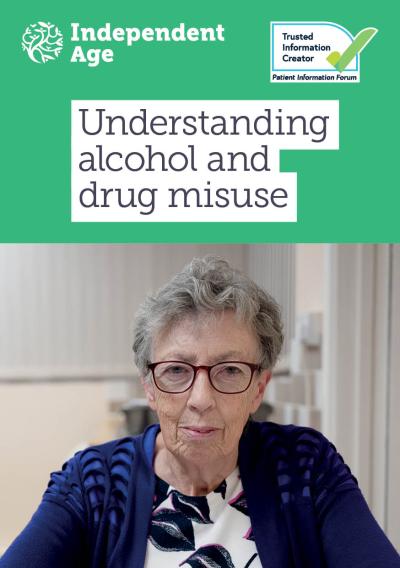Related publications

Dealing with depression

Managing anxiety

As we get older, changes in our lives, such as bereavement, illness or retirement, can affect our mental health. But getting older doesn’t mean your mental health will always get worse. There are things you can try to keep yourself feeling well and there is help if you need it.
Mental health describes your emotional wellbeing – how you think, feel, and react. It’s just as important as your physical health. And like your physical health, it can get better or worse as your situation changes.
You may not experience poor mental health as you get older. But if you do, you’re not alone. Mental health problems are very common, although different types affect different numbers of people. Depression is the most common, affecting around 1 in 5 older people. Anxiety affects around 3 in 10 older people.
As you get older, painful events or changes in your situation may affect your mental health and make you more vulnerable to problems, such as depression or anxiety. For example:
Sometimes, there might not be an obvious reason for how you're feeling.
If your negative feelings don’t go away or you’re having trouble coping with them, you may benefit from some help and support. Talking to friends, family or someone you trust is a good first step.
Your GP can assess your needs and suggest treatments, such as counselling, medication or steps you can take to help yourself. Remember, you don’t have to have physical symptoms to speak to your GP about your health.
If you have particular needs because of your cultural or religious background, ask your GP to refer you to services that can meet those needs – for example, if you want to see a practitioner from the same background. Mind has more information about this.
If there isn’t anyone you feel you could talk to, you could try contacting a helpline for emotional or mental health advice and support, such as:
If you start to feel that life isn’t worth living or that you want to harm yourself, get help immediately.
| If your life is at risk, call 999 and ask for an ambulance. |
If you don’t want to call 999:
Mind has more information about how to get help in a crisis.
If you’re finding it harder to look after yourself, make sure you’re getting enough support. Ask your local council for a care needs assessment, which will work out what your care needs are.
If you need help expressing your views or to get support, you may benefit from an independent advocate. In some situations, you may have a legal right to an advocate.
If money worries are troubling you, make sure you’re claiming all the benefits you’re entitled to. Call our Helpline to arrange a benefits check or try our benefits calculator. You could also visit the Mental Health and Money Advice Service for advice and help.
If you’re worried about a specific problem or you’ve been through a difficult situation, there may be a specialist organisation that can help. For example:
As well as getting support if you need it, there are lots of things you can try to look after your mental health. Different things work for different people, so be kind to yourself if you try one of these and it doesn’t work.
These include things such as guided self-help, where you work through a workbook, and free, online resources, such as:
You could also look at Reading Well mental health books on prescription. Ask your GP or local library for recommendations.
Feeling lonely or isolated can contribute to a low mood, so try to keep in touch with people. Find ways to increase your social connections – for example, doing a course or taking up a new hobby. Do things you enjoy to help take your mind off your worries.
If you’re looking for more social contact, look at our Get Support section or call our Helpline for details. Our guide If you're feeling lonely has more suggestions.
You might not be in the mood for exercising, but it’s a good idea to do as much as you can. Staying active can really help your mental health. Research shows it can give you more energy, boost your mood and self-confidence, and help you to sleep better. Try to find an activity that works for you, for example:
Before starting a new exercise routine, it’s best to talk to your GP, especially if you’re not used to regular exercise. Your GP might be able to refer you for a formal exercise programme.
Eating well can have a positive effect on how you feel. Aim for low-sugar foods and drinks, and avoid drinking too much alcohol. Try to eat a balanced diet and get at least five portions of fruit or vegetables a day. Drink plenty of water – even slight dehydration can affect your mood. Visit NHS Eat Well or talk to your GP for more information.
Helping others can boost your mental health and your social connections. You could try volunteering, which is a great way to meet new people and help a cause you care about. There are lots of different opportunities, so find something that suits your skills and interests. Try looking at:
Being around animals or doing activities outdoors can really help your health and wellbeing. Mind has some suggestions for ideas to try in nature. You could also contact your local Mind to find out about activities in your community.
If you’re having problems with sleeping, try changing your routine. Our webpage Getting a good night's sleep has advice on how to develop healthier sleeping habits and where to get help if you need it.
You could also learn relaxation techniques and breathing exercises to help you to feel calmer. You can find breathing exercises for stress on the NHS website.

Talk to your GP or someone you trust about how you're feeling.
Read our living well section for more ways to look after your physical health.
Learn more about improving your mental health on the NHS website.
By calling Independent Age's free and impartial Helpline, you can get information and advice from one of our friendly advisers, or order our free guides.